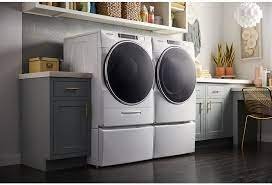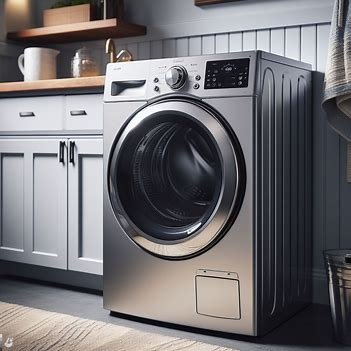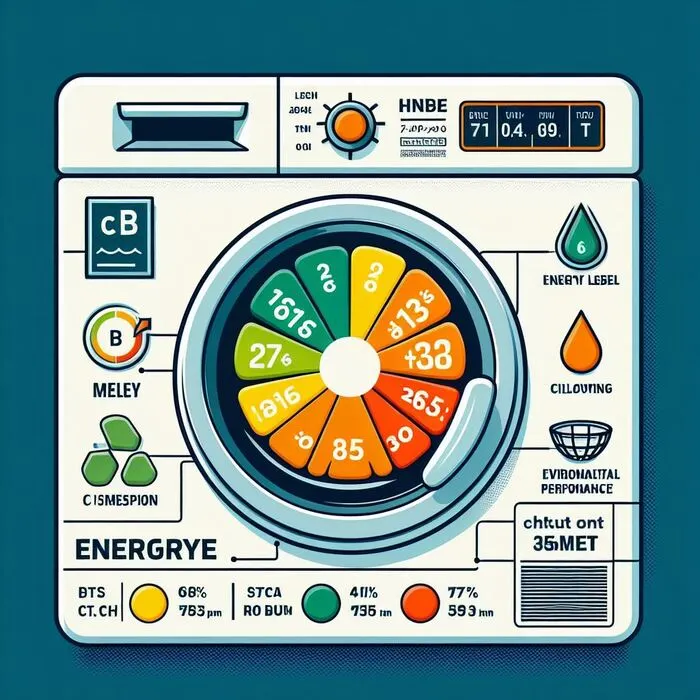Gas vs Electric Dryer: Which One Should You Choose?
When it comes to upgrading your laundry appliances, choosing between a gas dryer and an electric dryer is a crucial decision. Gas vs Electric Dryer? The choice you make will impact your laundry experience, energy efficiency, and long-term savings. In this comprehensive guide, we will break down the key factors to consider when selecting between these two types of dryers.
What is a gas dryer?
Gas dryers offer several advantages that make them a preferred choice for many households. Let’s delve into the specifics:
what are the Advantages of Gas Dryers?
The Advantages of Gas Dryers are:
- Energy Efficiency: Gas dryers are known for their energy efficiency. They can often dry clothes faster than their electric counterparts, resulting in lower energy consumption.
- Faster Drying Times: Thanks to their high heat output, gas dryers can significantly reduce drying times. This is especially beneficial for large loads or heavy fabrics.
What are the disadvantages of a gas dryer?
The disadvantages of Gas Dryers are:
- Higher Upfront Cost: Gas dryers typically have a higher initial purchase price compared to electric dryers.
- Safety Concerns: Gas dryers pose potential safety hazards, including the risk of carbon monoxide leaks if not properly maintained.
- Gas Hookup Required: You need a dedicated gas hookup, which may involve installation costs if your home doesn’t have one.
what are the Installation and Costs?
- Gas Hookup and Venting Requirements: To use a gas dryer, you’ll need a dedicated gas dryer hookup and proper venting to expel combustion byproducts. This can involve additional installation costs.
- Upfront Cost and Long-term Savings: Gas dryers typically have a higher upfront cost, but the potential long-term savings on energy bills can outweigh this initial investment.
- Safety Concerns: It’s important to note that gas dryers come with safety concerns related to the potential release of carbon monoxide. Regular maintenance and proper venting are crucial to mitigate these risks.
Energy Efficiency
Gas dryers have the upper hand when it comes to energy efficiency. They consume less energy and offer faster drying times, making them a suitable choice for energy-conscious consumers how many watts does a gas dryer use per cycle.
To help you make an informed decision, read how many amps does a gas dryer use guide.
What is an electric dryer?
Electric dryers have their own set of advantages, making them a viable choice for some consumers. Here’s what you need to know:
what are the Advantages of Electric Dryers?
The Advantages of Electric Dryers are:
- Variety of Models: Electric dryers come in a wide range of models, giving you more options to choose from to suit your specific needs and space constraints.
- Lower Upfront Costs: Electric dryers are often more budget-friendly than gas dryers, making them an attractive choice for cost-conscious consumers.
- Ease of Maintenance and Safety: Electric dryers are generally easier to maintain, and they don’t pose the same carbon monoxide safety risks associated with gas dryers.
What are the disadvantages of electric dryers?
- Longer Drying Times: Electric dryers generally have longer drying times due to their lower heat output, which may not be suitable for those seeking quicker results.
- Higher Energy Consumption: Electric dryers consume more electricity, resulting in higher energy bills over time.
what are the Installation and Costs?
- 240-Volt Outlet: To use an electric dryer, you’ll need a 240-volt outlet, which may require electrical work. While electric dryers are cheaper upfront, installation costs can vary.
- Longer Drying Times: Electric dryers typically have longer drying times due to the lower heat output, which can be a drawback for those looking for quick results.
- Increased Electricity Consumption: How many watts does an electric dryer use ? Electric dryers consume more electricity, which can lead to higher energy bills over time.
- Ventless Dryers: In certain situations, ventless electric dryers can be a practical choice when venting is not feasible, such as in apartments or small spaces.
Cost Comparison: Gas vs. Electric
Now, let’s break down the cost comparison between gas and electric dryers. It’s important to consider the following factors:
| Cost Element | Gas Dryers | Electric Dryers |
|---|---|---|
| Upfront Costs | Higher | Lower |
| Energy Costs | Lower | Higher |
| Installation Costs | Gas hookup and venting may require additional costs | 240-volt outlet may require electrical work cause of 220 dryer plug wiring |
| Local Utility Prices | Impact on gas and electricity rates can vary | Impact on electricity rates can vary |
Local utility prices play a significant role in determining the overall cost. Be sure to check with your utility company for specific rates in your area.

Installation Considerations
When it comes to installation, it’s essential to understand the requirements for both gas and electric dryers. If you’re unsure about the type of dryer you currently have, here’s a simple guide:
- Gas Dryer: If your dryer has a flexible metal dryer gas line size and a venting system to the outdoors or roof dryer vent, you likely have a gas dryer.
- Electric Dryer: If your dryer has a largeelectric dryer plug with three 10/3 Wire for Dryers or four prongs and doesn’t require a gas line, you likely have an electric dryer. It depends on what size wire for an electric dryer you are using.
Installation can be a DIY project for some, while others may prefer professional assistance. Ensure that you follow safety guidelines and local building codes if you choose to install it yourself.
Maintenance and Safety
Both gas and electric dryers require regular maintenance to ensure their safe and efficient operation. Here are some key considerations:
- Gas Dryer Maintenance: Regularly clean the lint filter, inspect and clean the venting system, and schedule professional inspections to check for gas leaks or carbon monoxide concerns.
- Electric Dryer Maintenance: Clean the lint filter, ensure proper ventilation, and periodically check electrical connections to prevent hazards.
Safety tips for dryer usage include never overloading the dryer, not leaving it unattended while in use, and having carbon monoxide detectors installed if you use a gas dryer.
Energy Efficiency
Energy efficiency is a critical factor when choosing a dryer. Here’s a comparison of the energy efficiency of gas and electric dryers:
- Gas Dryers: Gas dryers are more energy-efficient due to their shorter drying times and lower energy consumption. Look for Energy Star-rated models for added efficiency.
- Electric Dryers: Electric dryers consume more electricity, resulting in higher energy costs over time. However, newer models are designed to be more energy-efficient.
To save energy and reduce operating costs, consider selecting a dryer that matches your typical laundry load size and follows recommended usage guidelines.
Longevity
When it comes to the expected lifespan of gas and electric dryers, both types can last for many years with proper maintenance. However, longevity is just one factor to consider in your decision. Other factors like energy efficiency, convenience, and installation requirements should also be taken into account.
FAQ Gas vs Electric Dryer
Is it better to get an electric or gas dryer?
The choice between an electric and gas dryer depends on your specific needs and circumstances. Gas dryers are known for their energy efficiency and faster drying times, making them a better choice for some. On the other hand, electric dryers are more budget-friendly and offer a wider variety of models, which may suit those with different requirements. how to vent a dryer without a vent to outside
Does a gas dryer need a vent?
Yes, a gas dryer requires proper venting to expel combustion byproducts and moisture from the drying process. Ensuring adequate venting is crucial for the safe and efficient operation of a gas dryer. As some may ask do gas dryers need to be vented
Why are gas dryers better?
Gas dryers are considered better for several reasons:
- Energy Efficiency: They are more energy-efficient, with shorter drying times and lower energy consumption, resulting in potential long-term savings.
- Faster Drying: The high heat output in gas dryers allows for faster drying, which can be especially beneficial for larger loads or heavy fabrics.
- Environmentally Friendly: Gas dryers produce fewer carbon emissions compared to electric dryers, making them a more eco-friendly choice.
Can I switch from a gas dryer to an electric dryer?
Yes, Switching from a gas dryer to an electric dryer is possible but may involve some considerations:
- You’ll need to have a 240-volt electrical outlet installed if you don’t already have one, which may require electrical work.
- Ensure that the existing gas line is safely disconnected by a professional, and that the venting is adjusted for the electric dryer.
- Keep in mind that the switch may result in differences in drying times and energy consumption, so be prepared for potential adjustments in your laundry routine and energy costs.
For further information read can you convert a gas dryer to electric guide post.
Conclusion
Gas vs Electric Dryer, the choice between gas and electric dryers depends on your specific needs and circumstances. Here’s a summary of the key points:
- Gas Dryers are energy-efficient, offer faster drying times, and may provide long-term savings. However, they come with higher upfront costs and safety considerations.
- Electric Dryers have a variety of models to choose from, lower upfront costs, and are easier to maintain. They are ideal for those with budget constraints and do not require a gas hookup.
Ultimately, your decision should be based on your budget, available utilities, and personal preferences. Consider factors such as energy efficiency, installation costs, safety, and the time you can dedicate to maintenance.
Before making a final choice, consult with local utility companies to understand pricing and consider energy-efficient models for both gas and electric dryers. This will help you make an informed decision that aligns with your specific circumstances.







